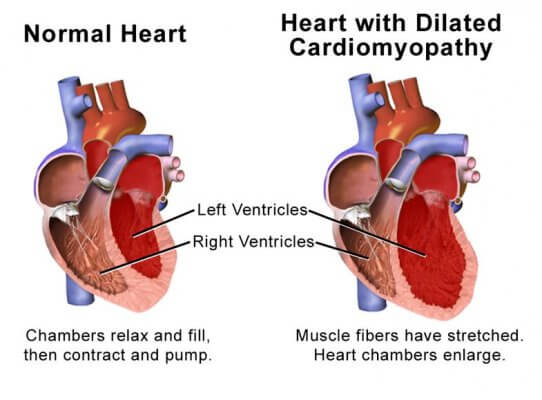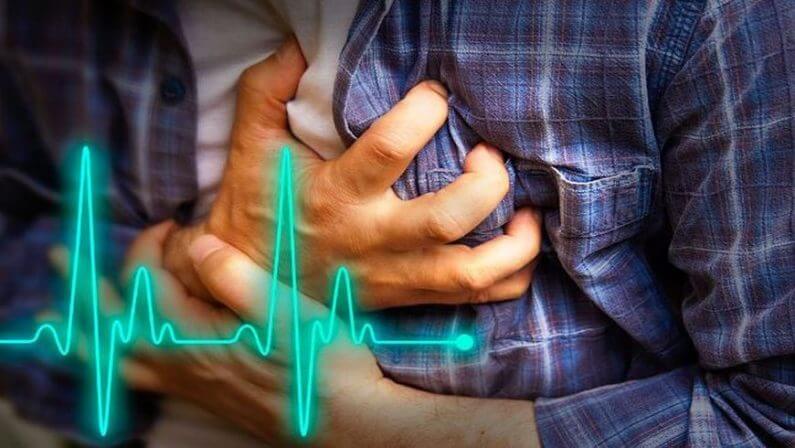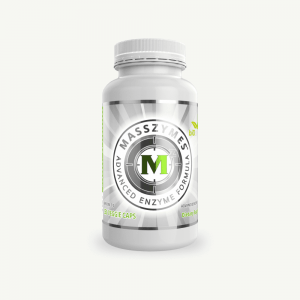General Health
How to Survive Heart Attacks & Cardiac Arrests
Cardiac arrest or heart attack is so rampant, a phenomenon we tend to not be serious about. It can strike at any time. When walking, at the office working, in our sleep, or trotting in the street. It can also occur during lovemaking. The next, you are on the ground. Dead.
Research has shown that in the United States of America alone, Cardiac Arrest occurs at least 350,000 times annually. That is to say, the heart of people literally stops beating. The alarming part of it is that in such instances, 95% of those affected do not survive. This is backed by data from the American Heart Association.
Why is Heart Attack so often fatal?
Shepal Doshi, M.D., director of cardiac electrophysiology at Providence Saint John’s Health Center in Santa Monica, California would want us to understand that when cardiac arrests occur, they are sudden, and the heart of the person completely stops beating. In most instances, if you are not lucky, and within a few minutes your heart does not start back again, then that might be the end.
Notable though is that it is a condition that can happen without any warnings at all. One time you are healthy, enjoying your life, the next you are gone. One thing that makes it more dangerous is that medical doctors, even heart specialists, do not know how to prevent it. There is, therefore, the need for swift action to save a person who gets a heart attack, says a cardiologist and researcher Matthew J. Budoff, M.D., of the David Geffen School of Medicine and Harbor-UCLA Medical Center in Torrance, California.
What Is Sudden Cardiac Arrest?
The terms “heart attack” and “cardiac arrest” are commonly used interchangeably, although they are totally two different problems with different focuses. Cardiac arrest suggests an immune electrical condition whereas heart attack refers to a plumbing problem, which might be a clot of any kind that blocks the flow of blood to the heart.
It is established that our hearts supposedly beat about 100,000 times a day and that each beat requires an electrical charge. Therefore, when there is a loss of power, things can really get fatal at a fast rate. This is akin to the power of your phone having a low battery. When such a phone starts to die, it just happens, and nothing can stop it unless a charge.
BEST PROBIOTICS & ENZYMES IN THE MARKET..!
Arrhythmia, commonly called abnormal rhythm is noted to be the cause of cardiac arrest. This takes place in the ventricles of the heart. In a normal, properly working person’s ticker the lower chambers squeeze and release to a regular beat, and this pushes life-giving blood to our brains and other organs that need this service. When such happens, the person experiencing that will probably or occasionally skip a heartbeat. What can be damaging is, when that happens, and the ventricles are forced to lose power, they quiver rapidly instead of “surviving”. This assumes a condition called fibrillation, which is a specific type of rhythm, that induces no blood to reach your vital organs.
Dr. Budoff explains that, when such happens, within a few minutes, one can have brain damage, which could be devastating, and may lead to sudden death.
Why Does Sudden Cardiac Arrest Occur?
If you have heard of the term cardiomyopathy, then you might know what it is. This is one major issue that leads to sudden cardiac arrest because cardiomyopathy is actually a weakened heart wall condition. A considerable number of people are born with this condition.
On their website www.heart.org, we read that “cardiomyopathy refers to diseases of the heart muscle. These diseases have many causes, signs, and symptoms as well as treatments. In most cases, cardiomyopathy causes the heart muscle to become enlarged, thick, or rigid. In rare instances, diseased heart muscle tissue is replaced with scar tissue.”
Further, the same source states that “as cardiomyopathy worsens, the heart becomes weaker. The heart becomes less able to pump blood throughout the body and incapable of maintaining a normal electrical rhythm. The result can be heart failure or irregular heartbeats called arrhythmias. A weakened heart also can cause other complications, such as heart valve problems.”
Although some are born with the condition of cardiomyopathy, it should be noted that over time, due to certain conditions such as high blood pressure, other diseases in the valves of the heart of people, or cases of drug abuse or alcohol can lead to cardiomyopathy, hence can also lead to cardiac arrests.

Additionally, prior incidences of heart attacks may also play a role. This is so because scarred tissues have the tendency to impede one’s heart electrical signals. These are structural issues that can tremendously raise the risk of ventricular fibrillation, and in effect makes one prone to cardiac arrest. Dr. Doshi would want us to think of our “hearts as a house, and the walls are the muscle.” He goes on to explain that the moment “the wall gets eaten with termites, the electrical wires which are in the wall can start shorting out, too.”
Low levels of minerals potassium and magnesium are known culprits. There is a corresponding association between the electrical signals your heart sends and the amount of these minerals in your body. At times when we see or experience cardiac arrest in people who do intense fitness workouts, what happens is that a surge of adrenaline through their bodies may trigger these sudden and impromptu cardiac arrests. This is even more marked in those born with cardiomyopathy.
You remember a distinction was made between a cardiac arrest and a heart attack, that the two are different, there is a connection between the two, which is more like a conundrum really because a heart attack can trigger immediate cardiac arrest. That is the irony of the two conditions. Basically, what that means is that one can have a cardiac arrest as a result of a heart attack.
Who Is at Risk of Sudden Cardiac Arrest?
The first point to look at is that a family history of cardiac arrests or any other heart-related problems puts one in danger of having a cardiac arrest. Do you remember Dr. Doshi’s quote above? He has this to say that:
“having a first-degree relative—parent, sibling, or child—who had sudden cardiac arrest doubles your risk.”
Shepal Doshi, M.D., director of cardiac electrophysiology, Providence, Saint John’s Health Center, Santa Monica
There are also genetic conditions that any of our parents can pass down to us, which can make us prone to cardiac arrests. Conditions, such as long QT syndrome, which is a disorder that increases the length of the time a heart needs to recharge between beats, that is one beat to the next, which messes with our heart’s rhythm and therefore leave one prone to ventricular fibrillation, is a scary situation.
What should baffle everyone is that people with cardiomyopathy are approximately five times more to experience sudden cardiac arrest than people without this heart abnormality. The scary bit is that many people are walking unaware they even have this condition, and in a society where the majority of people do not do periodic checkups, or health reviews, even health professionals, it gets even scarier.
To this end, Dr. Doshi says activities such as lack of exercise, smoking, putting on extra pounds of weight, alcohol weighs heavily on our hearts. This coupled with an unhealthy diet, also boosts one’s odds, Dr. Doshi says. This is true if one considers THIS article
All that said, it is worthy of note that many people who experience sudden cardiac arrest have apparently healthy hearts and no risk factors, Dr. Doshi says. Now, that does not mean you should freak out about dropping dead. But it does mean you should know your family history, stay alert to symptoms, and be prepared to act swiftly if you see someone else go down.
How Can You Identify Sudden Cardiac Arrest?
About an hour before a sudden cardiac arrest, you might feel nauseous, vomit, or have chest pain or shortness of breath. Immediate warning signs of sudden cardiac arrest include heart palpitations or a racing heartbeat, dizziness, or lightheadedness, or just feeling more winded or fatigued than usual, Dr. Doshi says. But two-thirds of the time, a sudden cardiac arrest has no symptoms. You simply lose consciousness and your pulse.
The question to ask is:
“What should one do if one sees someone suddenly go down?”
This someone could be anybody. It is therefore important to keep the following in mind:
The first thing to do is to call emergency immediately. After that, you have to look for automated external defibrillators, which are often found in malls, gyms, and other public places. Once you open it, there is a diagram with instructions on it, follow it. In some instances, the machine may also give audio instructions for its proper use.
After the above (defibrillation) or right away, if you do not find an AED (automated external defibrillator) you have to start performing CPR (Cardiopulmonary resuscitation).
In most part of the world, people are not trained in CPR. If you are not a qualified CPR giver, please do not give mouth-to-mouth. It would be enough to use your hands to push on the chest. This should be at a rate of about 100 to 120 beats per minute. You have to be doing the chest pushes until help arrives.
What is AED?
The Red Cross says an AED:
“is used to help those experiencing sudden cardiac arrest. It is sophisticated, yet an easy-to-use medical device that can analyze the heart’s rhythm and, if necessary, deliver an electrical shock, or defibrillation, to help the heart re-establish an effective rhythm.”
What is CPR?
Mayo Clinic defines Cardiopulmonary resuscitation (CPR)
“as a lifesaving technique useful in many emergencies, including a heart attack or near drowning, in which someone’s breathing or heartbeat has stopped.”
Can You Prevent Sudden Cardiac Arrest?
Truthfully, this is a very tricky question. It is tricky because doctors are not fairly sure why most sudden cardiac cases occur. However, there are tried and tested ways of preventing its incidence of taking care of your heart’s health. This to experts can make a huge difference.
These include eating a nutritious diet, maintaining a healthy weight, constant exercising, having enough sleep, and not smoking.
In case there is a family history of sudden cardiac arrest or any of its associated worrisome symptoms such as unusual fatigue or racing heartbeats, and shortness of breath, the best thing to do is to talk to your doctor immediately. The doctor might do a test such as an electrocardiogram (EKG) to check your heart’s electrical function or take images of it using echocardiography or magnetic resonance imaging (MRI).
In the event you are deemed high-risk, there are remedies that can be put in place to alleviate the condition. One such is an implant of a defibrillator, which is an internal device that automatically shocks your heart if it stops. To Dr. Doshi “it is like having your own paramedic.”
Worthy of note is that those who survive cardiac arrest once are usually at high risk of experiencing it again. It is a fact that Defibrillators can increase their survival odds, research shows. Many also are prescribed medications to regulate their heartbeat.
Steps to Reduce Heart Attack and Cardiac Arrests Incidences
The holy grail to achieve the above is to make drastic Lifestyle Changes. We recommend the following:
- If you smoke, quit.
- Eat healthily. Good nutrition
- Manage health conditions – diabetes, high cholesterol, high blood pressure
- Be physically active every day
- Aim for a healthy weight
- Reduce stress
- Check your weight
- Check your alcohol intake
Our Recommendation
What we recommend below will help you tremendously. Please check them out.
Takeaways
Heart attacks and cardiac arrests are conditions that can take the life of a person so easily. If you have a family history of such occurrences, the onus rests on you to take care of yourself. And to those who have had a previous heart attack, your life is in your hands to beat the odds. If you are diagnosed or have experienced any of the symptoms described above, do not procrastinate, and see your doctor immediately.
As to the initial question as to how to survive heart attacks & cardiac arrest, it should be now obvious that, yes, many people do survive, and you too can, if you put in place the measures I have elaborated on in this article.
Take care of yourselves.





Pingback: Silent Heart Attack Causes & Remedies » Health Impress 2021